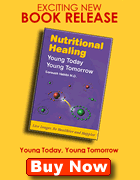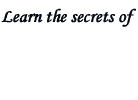Co-enzyme Q10 has been documented to be deficient in patients with cancer.
Co Q10 is a potent antioxidant and not only enhances the immune system but also
inhibits cancer growth and in cases may cause regression. 5
Coenzyme Q10 is available in small amounts in a variety of foods such as meats,
fish, sardines, peanuts, soy and vegetable oils. Coenzyme Q10 is primarily made
from coenzyme Q within the cells especially the liver.
Co enzyme Q is found in a variety of foods from which the body makes CoQ10.
The body can also make Coenzyme Q10 from amino acid tyrosine for which the body
needs 8 vitamins and many trace elements.
Coenzyme Q10 could be regarded as part of the vitamin B group with powerful
antioxidant activity. It was discovered in 1957. It is called ubiquinone because
it is synthesised from coenzyme Q in every cell in the human body. It works
within the mitochondria to produce energy. It is crucial in the production of
ATP. Dr Peter Mitchell was awarded the Nobel Prize in 1978 for his work on Coenzyme
Q10 and the process of energy transfer within the mitochondria.
It has been shown that patients with heart disease are low in Coenzyme Q10.
Coenzyme Q10 has been freely used in Japan and Europe since 1980.
Coenzyme Q10 levels decline with age, thus supplementation is vital to maintain
youth levels.
Deficiency
Deficiency can occur due to the following:
- Aging
- Insufficient intake from our diet
- Reduced assimilation from our foods
- Excessive use by the body
- Exercise
- Medication such as class of "statins" which are cholesterol lowering
drugs
|




